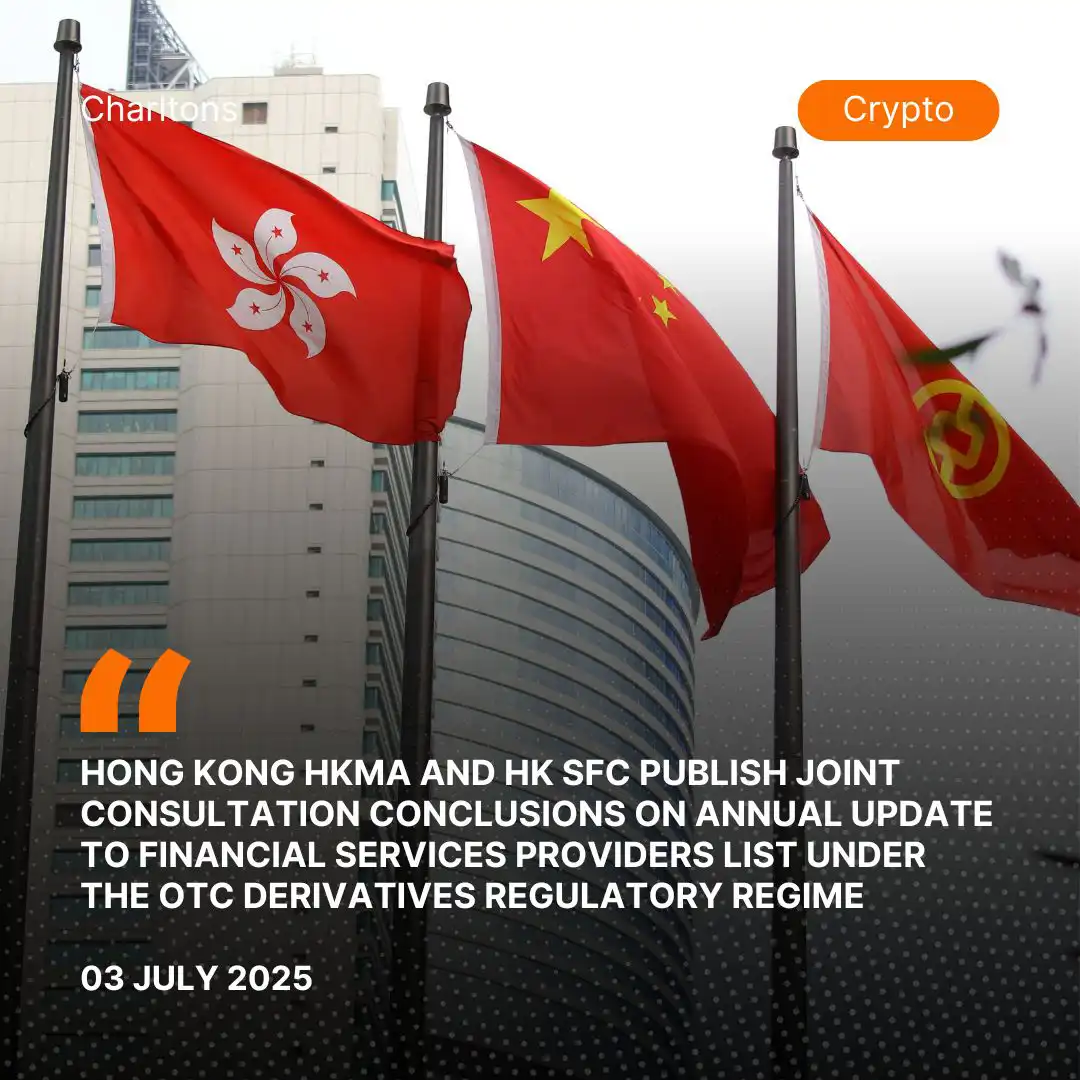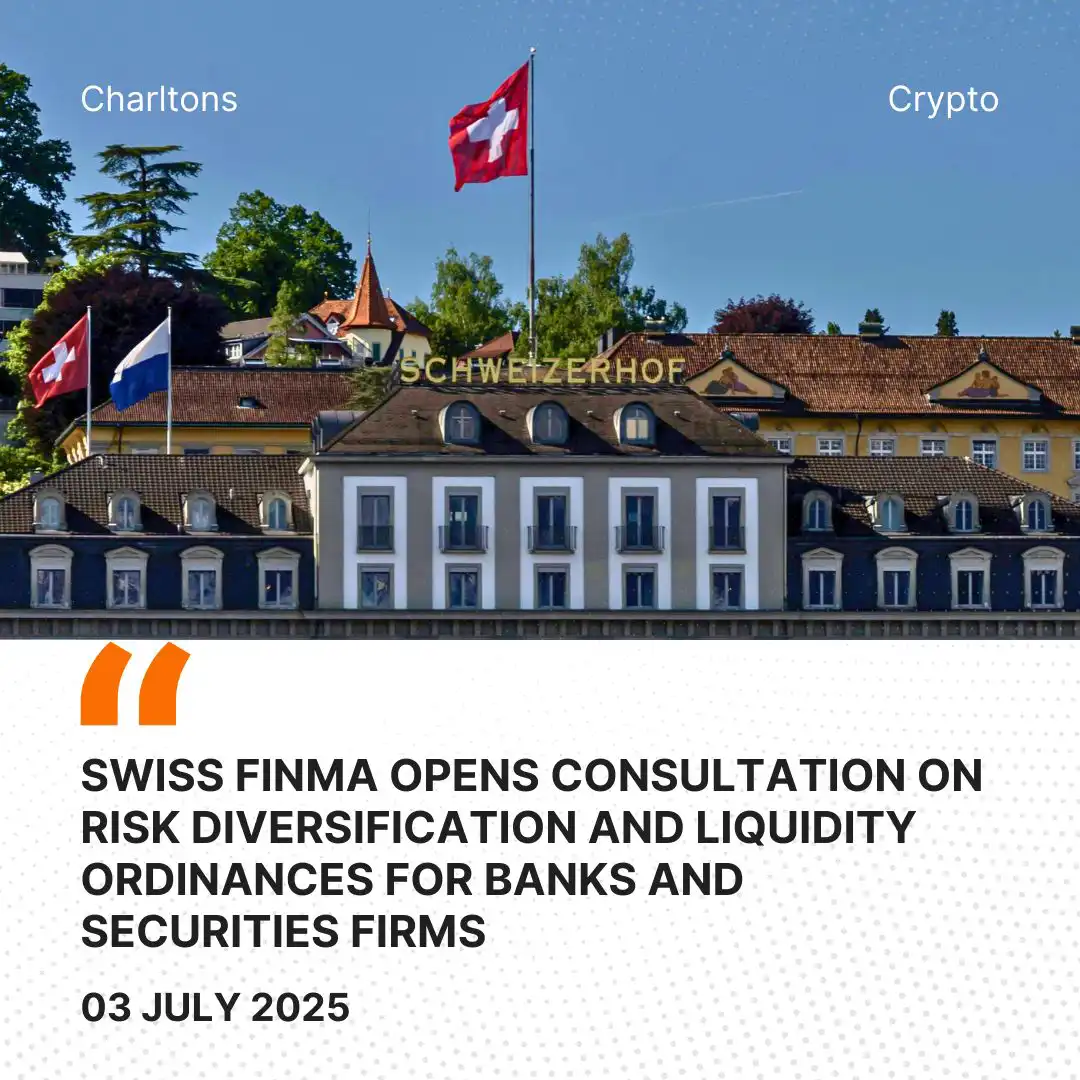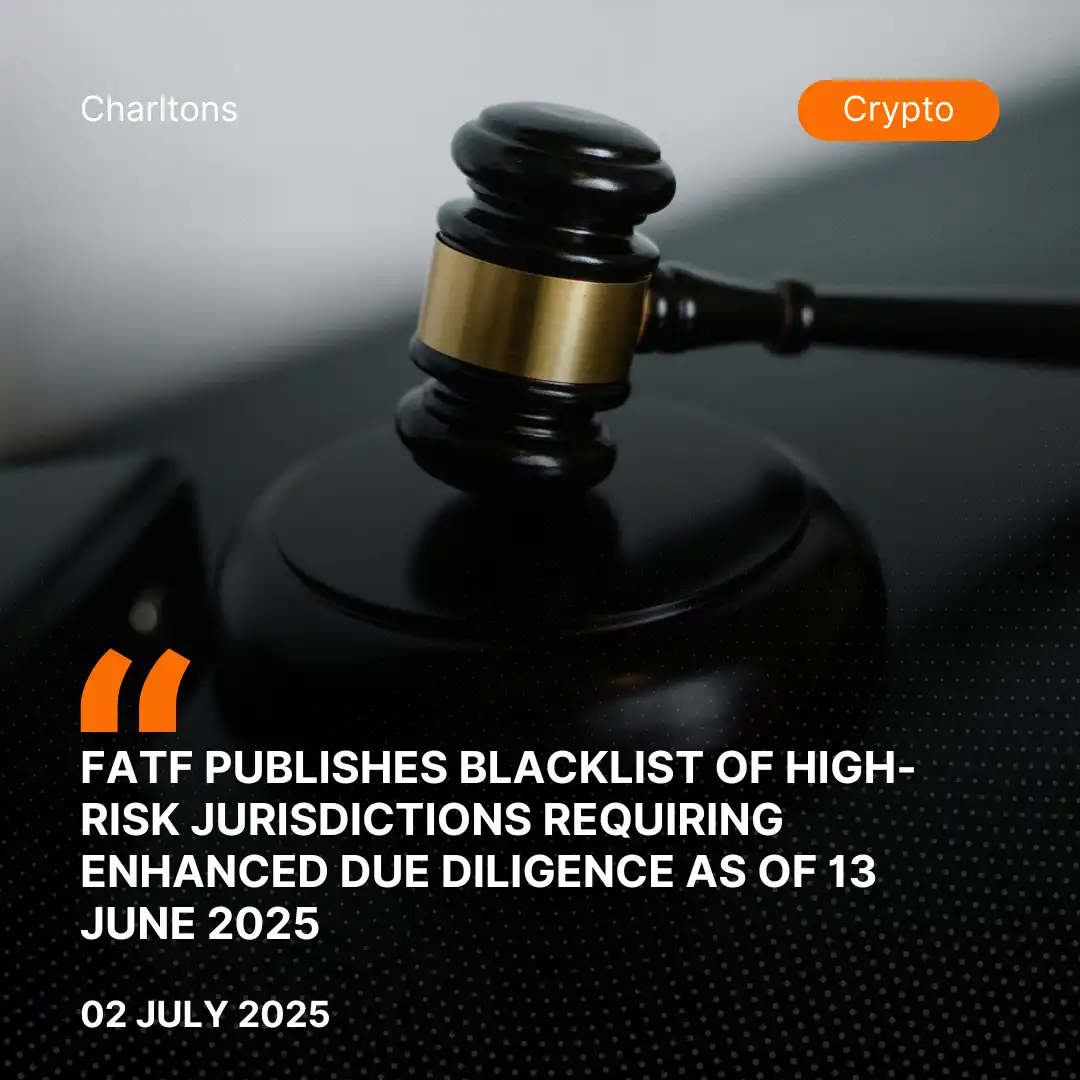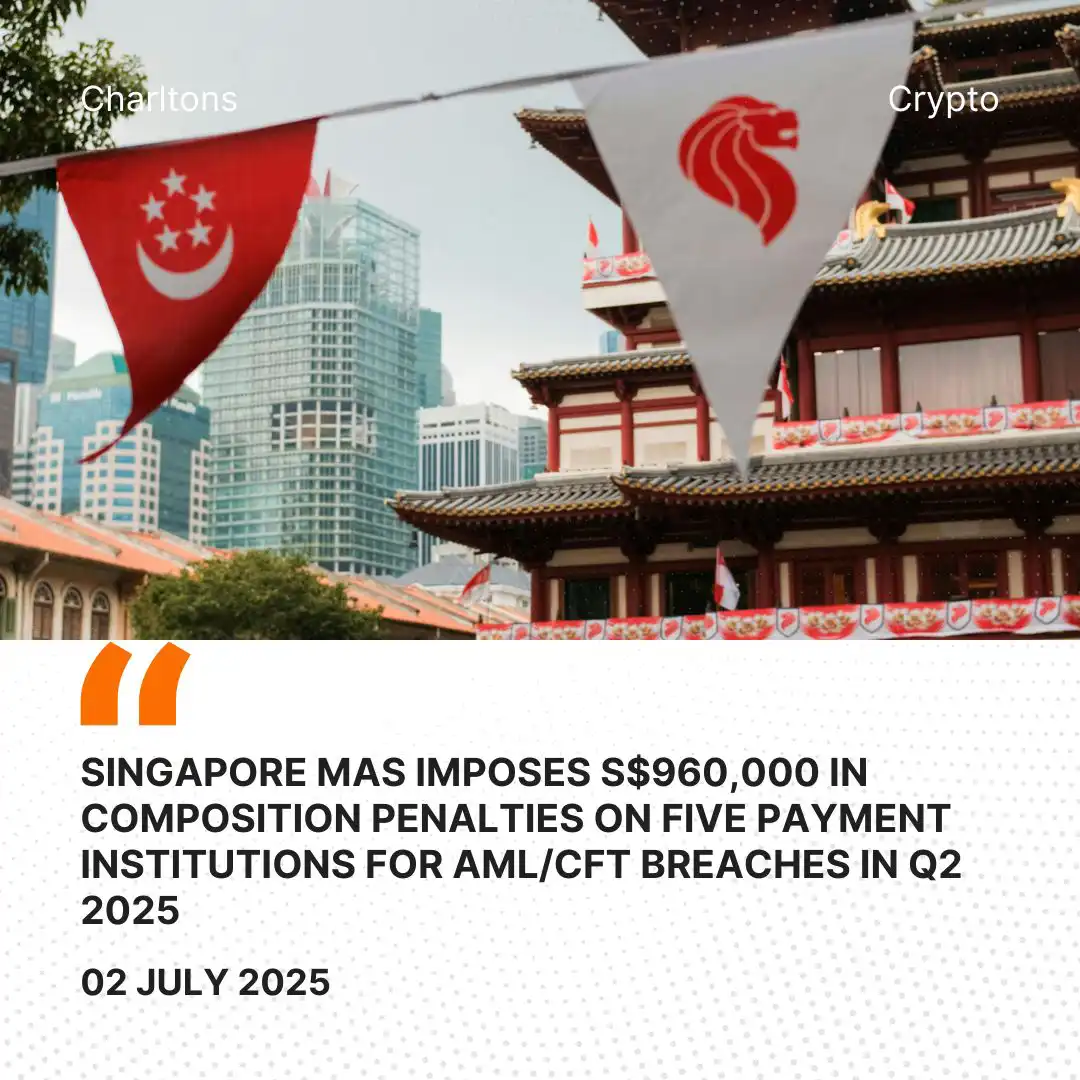
28 JUNE 2024
ATO Tightens Crypto Tax Compliance with Enhanced Data Collection Program
The Australian Tax Office (ATO) is closely tracking crypto gains as the financial year ends on June 30, 2024. This year, the ATO has significantly ramped up its efforts in crypto tax compliance by launching an improved data matching program to ensure accurate reporting from crypto investors.
Adam Saville-Brown, General Manager of Koinly, a crypto tax reporting software company, states that the ATO has been monitoring the crypto space for years. The new program marks a stricter approach, allowing the ATO to gather transaction data from any legally operating crypto exchange, including platforms like Binance, Coinbase, and CoinSpot.
The ATO’s data collection program is comprehensive, gathering a wide range of information, such as names, addresses, emails, social media accounts, and IP addresses of approximately 1.2 million crypto investors each year. This detailed data helps the ATO cross-check tax returns and identify discrepancies, enhancing the accuracy of tax reporting and compliance.
Saville-Brown acknowledges that most crypto investors in Australia are aware of their tax reporting obligations, but the enhanced data collection program aims to address non-compliance. The ATO will send reminder letters to those who do not accurately report their crypto transactions, nudging them towards compliance.
The collapse of Celsius, a prominent American crypto lender, has added complexity to the crypto tax landscape. The ATO has not yet clarified the tax implications for Celsius users receiving repayments in Bitcoin and Ether, leaving many users confused and potentially impeding accurate tax reporting. Michelle Legge, Koinly’s Tax Education Head, highlights the current ambiguity surrounding cost basis calculations for crypto assets. Investors are unsure whether to use traditional accounting methods or alternative approaches, such as the original purchase price or the asset’s value at a specific point in time, like when withdrawals were restricted or when Celsius filed for bankruptcy.
Saville-Brown emphasizes the importance of consulting with an experienced accountant to navigate the complexities of Celsius refunds. These repayments could be classified as either taxable gains or losses, and professional guidance can help investors ensure accurate tax reporting.
The introduction of Australia’s first two spot Bitcoin ETFs in June 2024 marked a significant milestone for cryptocurrency adoption. Notably, one of these ETFs directly holds Bitcoin, another first for the Australian market. However, investors should be aware that current tax laws still apply. According to Legge, selling holdings at a profit from a Bitcoin ETF will incur Capital Gains Tax just like any other investment. While Bitcoin ETFs make crypto investing easier for many Australians, these transactions will still lead to a tax obligation.
28 JUNE 2024
Denmark Considers Regulating Self-Custody Bitcoin Wallets and DeFi Interfaces, Sparking Industry Debate
Denmark is taking a significant step in the cryptocurrency world by considering regulations for self-custody Bitcoin wallets and decentralized finance (DeFi) interfaces. The Danish Financial Supervisory Authority’s (DFSA) new guidance aims to bring comprehensive oversight to cryptocurrency-related services, drawing mixed reactions from industry experts and stakeholders.
The DFSA’s new guidance presents a detailed regulatory framework for interfaces associated with cryptocurrencies. Mikko Ohtamaa from Trading Protocol has voiced strong criticisms, arguing that such broad regulations could encompass everything from personal computers to web browsers, Bitcoin wallets, and decentralized exchange (DEX) websites. Ohtamaa contends that this expansive approach could severely hinder the operation and accessibility of Bitcoin wallets and DeFi services in Denmark.
This regulatory move by the DFSA is seen as a proactive response to the European Union’s Markets in Crypto-Assets (MiCA) regulation, set to take effect on December 30, 2024. While MiCA does not specifically address decentralized finance, the DFSA has opted for a more inclusive regulatory strategy. However, this decision has sparked concerns that Bitcoin wallets and related services may become increasingly difficult to use within Denmark.
Other countries have also explored similar regulatory paths. Estonia, for instance, had previously considered regulations for self-custody wallets. Conversely, the United States has adopted a different stance. Notably, allegations against Coinbase Wallet were dismissed in the ongoing case between the SEC and Coinbase, affirming the legality of self-custody wallets in the U.S. Moreover, the FIT21 Act in the U.S. chose to study DeFi rather than regulate it immediately, reflecting a more cautious approach.
The DFSA is currently seeking feedback from private stakeholders, and it remains uncertain how these regulations will be finalized and implemented. Should they be accepted in their current form, the regulations could significantly impact the provision of self-custody Bitcoin wallet services in Denmark. Applications and web browsers facilitating such services would also be affected, potentially leading to severe restrictions within the cryptocurrency sector in the country.
While this regulatory proposal is still in the discussion phase, there are concerns about its potential implications. A limited service area for cryptocurrency activities may prompt investors to seek alternatives outside Denmark. However, given the ongoing consultations and discussions, the possibility of an outright ban remains low.
As the DFSA gathers input and refines its approach, the future of cryptocurrency regulations in Denmark will be closely watched by industry participants and observers, with the hope that a balanced and effective regulatory framework can be achieved.
1 JULY 2024
Bolivia Central Bank Updates Regulations to Include Virtual Asset Transactions
On 26 June, 2024, the Central Bank of Bolivia, Banco Central de Bolivia (BCB) issued Press Release CP35/2024, with updates to regulations surrounding Virtual Assets. Through Board Resolution No. 082/2024, the BCB revoked the earlier Board Resolution No. 144/2020, now permitting the use of Electronic Payment Instruments (IEP) for transactions involving Virtual Assets.
This pivotal decision, made in collaboration with the Financial System Supervision Authority, Autoridad de Supervisión del Sistema Financiero (ASFI) and the Financial Investigations Unit (UIF), aligns with the 2024 Mutual Evaluation of Bolivia by the Financial Action Task Force of Latin America, Grupo de Acción Financiera de Latinoamérica (GAFILAT). The evaluation recommended the regulation of Virtual Asset Services (PSAV) to harmonize with Bolivian public policy, prompting this regulatory evolution.
BCB’s initiative is part of an ongoing effort to modernize the national payment system, fostering technological innovation and promoting financial inclusion. Dr. Edwin Rojas Ulo, the acting President of the BCB, emphasized that Resolution No. 084/2024 will bolster financial and commercial activities, providing the population with additional transaction mechanisms.
“The BCB has continuously promoted technological innovations and new payment schemes, becoming a regional reference in interconnection, interoperability, and digital financial inclusion. This new resolution will provide the population with an additional mechanism to strengthen financial and commercial activities,” he stated.
UIF Director Pamela Troche noted that the UIF will implement preventive measures to identify suspicious activities related to money laundering and terrorism financing. This regulatory adjustment aims to prevent virtual asset transactions from being exploited by criminal organizations.
ASFI will oversee financial intermediaries that offer virtual asset acquisition services, ensuring they provide necessary financial education about associated risks. Concurrently, the UIF will implement measures to prevent suspicious transactions, particularly those related to money laundering and terrorism financing, safeguarding virtual asset transactions from criminal exploitation.
The BCB reiterated that the Boliviano remains the only legal currency in Bolivia, as established by Law No. 901 of November 28, 1986. Virtual assets are not legal tender, and users assume the risks associated with their use and commercialization. To enhance public understanding, the BCB will incorporate information on virtual assets and their risks into its Economic and Financial Education Plan.
This proactive regulatory update by the BCB demonstrates a commitment to Bolivia’s economic stability and development. By enabling the use of IEP for virtual asset transactions and aligning with international recommendations, Bolivia is setting a path for a modern, inclusive financial landscape.
For more information, you can view the full press release here.
(Source: https://www.bcb.gob.bo/webdocs/10_notas_prensa/CP_35%20NormativaActivosVirtuales.pdf)
2 JULY 2024
Circle Achieves Compliance with EU Crypto Regulations, Paving the Way for Global Stablecoin Expansion
On Tuesday, 2 July, 2024, Circle, the issuer of USD Coin (USDC) and Euro Coin (EURC) stablecoins, announced a achievement in the European crypto sector. Circle has become the first global stablecoin issuer to comply with the European Union’s Markets in Crypto-Assets (MiCA) regulatory framework.
This compliance was facilitated by Circle obtaining an Electronic Money Institution (EMI) license from the Autorité de Contrôle Prudentiel et de Résolution (ACPR), the French financial regulator. This pivotal license allows Circle to officially issue both USDC and EURC within the EU, adhering to MiCA regulations that took effect on July 1, 2024. MiCA represents a comprehensive regulatory regime governing crypto-assets, including specific provisions for stablecoins. By December, the regulations for crypto service providers will also be operational, marking a significant shift in the European crypto landscape.
Jeremy Allaire, co-founder and CEO of Circle, hailed the licensing achievement as a “huge milestone in bringing digital currency into mainstream scale and acceptance.” He added, “By working closely with French and EU regulators, we are now able to offer both USDC and EURC as fully-compliant dollar and euro stablecoins to the European market, unlocking the enormous potential of digital assets to transform finance and commerce.”
Circle’s proactive steps in securing regulatory compliance underscore its commitment to advancing digital finance and fostering trust in stablecoins across Europe. This development not only highlights the evolving regulatory environment but also marks a significant step towards mainstream adoption of digital currencies in the global financial ecosystem.
Circle’s journey towards this milestone has been underscored by its vision of a future where digital dollars securely facilitate a more prosperous global economy. The company created USDC, a digital currency backed by the US dollar and always redeemable 1:1, with a mission to transform how money moves around the world. By working closely with regulators to ensure compliance and surpass standards for stablecoins, USDC has the potential to change the global financial landscape fundamentally.
Launched in 2018 in partnership with crypto exchange Coinbase, Circle’s USDC is the second-largest stablecoin with a market cap of approximately $32.5 billion. Although it still trails behind market leader USDT, which boasts a market cap of around $112.6 billion, this regulatory milestone positions Circle for significant growth and influence in the European market.
2 JULY 2024
Paxos Gains Full Approval from MAS to Offer Digital Payment Token Services
Paxos has received full approval from the Monetary Authority of Singapore (MAS) to offer digital payment token (DPT) services, marking a significant milestone for the crypto firm. The DPT license enables Paxos to issue stablecoins in alignment with MAS’s upcoming stablecoin framework, the company announced on Tuesday.
Having initially secured in-principle approval from MAS in November 2023, Paxos has now met all regulatory requirements to achieve full licensing. This move underscores Paxos’s commitment to issuing tokens under the oversight of prudential regulators. “Stablecoins issued in accordance with standards set by a regulator like MAS – known for its rigorous regulatory standards – represent a significant step towards democratizing access to commerce and financial services,” remarked Walter Hessert, Head of Strategy at Paxos.
In August 2023, MAS finalized its stablecoin regulatory framework to ensure high price stability for stablecoins regulated within Singapore. The framework stipulates that only entities fulfilling all specified requirements can apply for approval as “MAS-regulated stablecoins.”
Paxos, already known for issuing the USDP stablecoin with a circulating supply of 461.56 million, holds licenses in the US and UAE. Additionally, Paxos is the issuer behind PayPal’s stablecoin, PYUSD. The latest license approval arrives at a time when MAS has highlighted heightened terrorism financing risks for DPT service providers. A joint statement from the Ministry of Home Affairs, Ministry of Finance, and MAS on Monday emphasized findings from the latest risk assessment.
Futher Paxos has partnered with DBS Bank for cash management and stablecoin custody. Evy Theunis, head of digital assets at DBS, stated that DBS’s solutions will help stablecoin issuers meet rigorous regulatory and customer standards. “This partnership further expands DBS’ wide-ranging involvement across the digital asset ecosystem, of which we have been a pioneer and innovator for several years now,” Theunis added.
DBS, identified as an Ethereum “whale” by on-chain firm Nansen for holding $650 million worth of Ether as of May, has been at the forefront of the digital asset space. The bank offers a suite of services including digital asset custody, a trading exchange for security tokens, and a crypto portfolio management app, solidifying its position as a major player in the evolving digital asset ecosystem.
3 JULY 2024
Bittensor Blockchain Temporarily Suspended Amid Security Breach, Aims for Revolutionary Decentralized AI
On Tuesday, the Bittensor blockchain, known for its cutting-edge decentralized artificial intelligence (AI) technology, experienced a significant setback due to a security breach that led to the abrupt suspension of its network. The developers initiated a “safe mode” after detecting suspicious activities aimed at user wallets, halting all transactions to prevent further damage. This interruption has not only impacted the blockchain’s operations but also precipitated a sharp 17% decline in the value of its TAO token, now trading at approximately $227.73.
Bittensor, an innovator in the blockchain realm, aspires to reshape economies by decentralizing digital commodities such as compute, data, storage, predictions, and models into intelligence. This disruption aims to foster new architectures and innovations at surprisingly lower costs, promising limitless possibilities for future developments.
The core development team responded swiftly by freezing the network, an action revealed by the block explorer showing no new blocks produced for about six hours. “We have contained the attack and put the chain into safe mode,” confirmed Ala Shaabana, co-founder of Bittensor. The blockchain will continue to operate in this restricted mode for the next 24 hours, prioritizing security over routine updates.
The financial implications of the hack remain undisclosed, although on-chain investigator ZachXBT noted that a theft address holds over 32,000 TAO tokens valued at roughly $8 million. The community has been advised to stay vigilant as the investigation continues.
The current crisis underscores the urgent need for enhanced security measures within the blockchain and cryptocurrency platforms. Despite these challenges, Bittensor remains committed to its mission of leveraging blockchain technology to create a collaborative environment for the development, training, and exchange of AI models. This environment encourages the contribution of computational resources and data, essential for the AI training processes integral to Bittensor’s innovative ecosystem.
As Bittensor navigates through these turbulent times, the potential of its platform to revolutionize the digital economy remains undiminished, driven by its foundational vision of decentralized and democratized technological progress.
3 JULY 2024
Binance Enhances Trading Environment by Delisting Low-Performance Pairs
Binance, one of the leading global cryptocurrency exchanges, has announced it will refine its trading offerings by delisting certain spot trading pairs that have shown consistently low liquidity and trading volumes. This move, part of Binance’s routine review of its trading pairs, aims to optimize the trading experience and maintain a robust trading environment for all users.
The affected trading pairs include AI/TUSD, BTC/AEUR, CHR/BNB, ETH/AEUR, GAS/FDUSD, and LQTY/FDUSD. This decision reflects Binance’s commitment to providing a quality trading environment and protecting its users’ interests by ensuring that all trading pairs meet certain performance standards.
By removing these underperforming pairs, Binance seeks to streamline its operations and focus on pairs that offer more liquidity and trading activity, which are crucial for the efficiency and stability of the trading platform. This action also helps in minimizing the risks associated with low liquidity, such as higher volatility and the potential for price manipulation.
The delisting will occur on July 5 and until then, traders can continue to engage with these pairs. Post-delisting, the affected cryptocurrencies will remain available for trading on Binance with other trading pairs, ensuring that users still have access to these assets. Additionally, Binance will terminate the Spot Trading Bots service for these pairs concurrently with the delisting, further aligning its services with the trading activity on the platform.
This proactive approach by Binance underscores its vigilance in maintaining a trading environment that is not only conducive to active trading but also aligned with the overall market dynamics and user interests.
4 JULY 2024
CFTC Wins Landmark Case Against Crypto Fraudsters: Over $120 Million Ordered in Penalties
In a recent victory for market integrity, the Commodity Futures Trading Commission (CFTC) announced on 3 July, 2024, that Judge Mary Rowland of the U.S. District Court for the Northern District of Illinois granted summary judgment in favor of the CFTC on all counts of its complaint against Sam Ikkurty of Oregon and several associated entities. The court ordered more than $83.7 million in restitution and $36.9 million in disgorgement, jointly and severally, against Ikkurty and his companies, including Jafia, LLC, Ikkurty Capital, LLC (d/b/a Rose City Income Fund I and II), and Seneca Ventures, LLC.
The court found that Ikkurty and his affiliates committed multiple violations of the Commodity Exchange Act (CEA) and CFTC regulations, including fraud and operating without proper registration. Judge Rowland characterized the defendants’ activities as “a classic Ponzi scheme,” particularly highlighting their fraudulent carbon offset program.
The summary judgment reveals that Ikkurty lured participants to his funds via webinars and trade shows, promising a steady 15% annual return on “net profits” through investments in digital asset commodities such as Bitcoin and Ethereum. He falsely touted the success of his previous ventures to attract new investors, assuring them of stable returns from “safe” digital assets. However, the court found that these assurances were deceitful, as Ikkurty did not return any net profits to participants. Instead, he orchestrated a Ponzi scheme, using new investments to pay earlier investors.
The judgment also exposes that Ikkurty’s marketing materials grossly misrepresented his fund’s performance, omitting the fact that it had lost 98.99% of its value over a few months. Contrary to his claims of stability, Ikkurty invested in volatile digital assets, some linked to carbon offsets, and suffered personal losses due to a hack.
Significantly, the court found that the defendants misappropriated funds through a carbon offset program. They raised money by selling products supposedly backed by digital assets related to carbon offsets. Instead of securing the promised collateral, the defendants funneled much of these funds to earlier investors in other schemes, resulting in a $20 million shortfall for the carbon offset program participants.
This ruling highlights the CFTC’s robust enforcement capabilities and serves as a deterrent to potential fraudsters in the cryptocurrency sector. By holding Ikkurty and his companies accountable, the CFTC reinforces its commitment to safeguarding investors and maintaining market integrity.
For the burgeoning crypto community, this case exemplifies judicial safeguards at work, providing a measure of security and trust necessary for the industry’s growth. The CFTC’s decisive action against fraudulent activities helps cultivate a more transparent and secure environment for digital asset trading.
In addition to the financial penalties, the CFTC will seek injunctive relief and a civil monetary penalty against the defendants. The court also reaffirmed the CFTC’s jurisdiction over Bitcoin, Ethereum, and other digital assets, including OHM and Klima, categorizing them as commodities.
The CFTC advises the public to remain vigilant against commodity pool fraud and verify a company’s registration status through NFA BASIC before investing. Suspicious activities can be reported via the CFTC’s toll-free hotline or online. Whistleblowers may receive between 10% and 30% of the collected monetary sanctions.
The enforcement team responsible for this case includes Candy Haan, Heather Dasso, Doug Snodgrass, Joseph Patrick, Elizabeth Streit, Scott Williamson, Robert Howell, and former staff member David Terrell.
This landmark decision not only penalizes the wrongdoers but also strengthens the regulatory framework protecting investors. The crypto community can look forward to a safer trading environment as the CFTC continues to crack down on fraudulent schemes, ensuring a fair and transparent market for all participants.
(Source: https://www.cftc.gov/PressRoom/PressReleases/8931-24)
4 JULY 2024
EU-U.S. Financial Regulatory Forum: A Milestone in Transatlantic Cooperation
On 25-26 June, 2024, the EU–U.S. Joint Financial Regulatory Forum concluded a meeting hosted by the European Commission and the U.S. Department of the Treasury. This forum brought together top financial regulators from both sides of the Atlantic to discuss and align on critical issues, with a special focus on cryptocurrency regulation and anti-money laundering (AML) efforts.
Representatives from the European Commission, European Banking Authority (EBA), European Securities and Markets Authority (ESMA), European Insurance and Occupational Pensions Authority (EIOPA), European Central Bank (ECB), and the Single Resolution Board (SRB) joined their U.S. counterparts from the U.S. Department of the Treasury, Federal Reserve Board (FRB), Commodity Futures Trading Commission (CFTC), Federal Deposit Insurance Corporation (FDIC), Office of the Comptroller of the Currency (OCC), Securities and Exchange Commission (SEC), and Consumer Financial Protection Bureau (CFPB).
The forum highlighted the necessity of robust EU-U.S. cooperation in several key areas, particularly focusing on the evolving landscape of cryptocurrency regulation and AML/CFT measures. Participants emphasized the need for stringent supervisory practices and effective macroprudential policies to safeguard financial stability amid increasing geopolitical tensions and economic uncertainties.
A major highlight of the forum was the detailed discussions on cryptocurrency assets and their regulation. Both the EU and U.S. sides acknowledged the rapid growth and potential risks associated with digital currencies. The European side updated on the implementation of the Markets in Crypto-Assets (MiCA) Regulation, aiming to establish a harmonized framework for crypto-asset markets across the EU. Meanwhile, U.S. participants shared insights from the Treasury-FRB Critical Providers Dialogue, emphasizing the need for robust oversight mechanisms.
Participants stressed the importance of international cooperation to address issues related to crypto-assets, including the regulation of stablecoins. They agreed on the necessity of continued coordination through international forums such as the Financial Stability Board (FSB) to develop consistent regulatory standards and enhance market integrity.
Equally significant were the discussions on anti-money laundering and countering the financing of terrorism (AML/CFT). U.S. representatives provided updates on the ongoing implementation of the Anti-Money Laundering Act of 2020, including the establishment of a beneficial ownership registry under the Corporate Transparency Act. They highlighted Treasury’s 2024 National Illicit Finance Strategy and the latest National Risk Assessments on Money Laundering, Terrorist Financing, and Proliferation Financing.
EU participants shared progress on their recently adopted Anti-Money Laundering Package, which includes the creation of a new Anti-Money Laundering Authority. Both sides discussed strategies to enhance AML/CFT frameworks, improve transparency, and strengthen enforcement against financial crimes.
Sustainable finance and corporate sustainability were also key topics. Participants exchanged views on recent developments in climate-related financial disclosures and the work of international bodies like the G20’s Sustainable Finance Working Group. The ECB presented updates on integrating climate risks into financial strategies and governance.
On capital markets, discussions focused on the shortening of the settlement cycle in the U.S. and potential implications for the EU. ESMA provided updates on its assessment of the settlement cycle and the associated costs and benefits. Discussions on fund reforms and vulnerabilities in the non-bank financial intermediary sector further emphasized the importance of international cooperation.
The forum also explored the use of artificial intelligence in financial services, discussing opportunities, challenges, and regulatory implications. Both sides expressed a keen interest in ongoing discussions on AI in international forums. Financial data sharing proposals were another focal point, with updates on the European Commission’s Financial Data Access Regulation and the CFPB’s rulemaking on Personal Financial Data Rights.
The forum concluded with exchanges on operational resilience, underscoring the importance of ongoing cooperation to ensure the stability and security of the financial system. Participants reaffirmed the forum’s role in fostering continuous dialogue on regulatory and supervisory issues, supporting financial stability, investor protection, and market integrity.
Both EU and U.S. participants acknowledged the forum’s critical role in addressing mutual concerns and committed to continued engagement on these topics ahead of the next forum meeting. This ongoing dialogue is essential for developing cohesive policies that enhance the resilience of the financial system and protect against emerging risks in the digital age.
(Source: https://home.treasury.gov/news/press-releases/jy2443)
4 JULY 2024
Russia Advocates Crypto Solutions for International Payments Amid Sanctions
Amid escalating Western sanctions, Russia’s central bank is advocating the use of cryptocurrencies and other digital assets to facilitate international payments. Elvira Nabiullina, the governor of the Bank of Russia, underscored the significance of innovative financial solutions at a financial conference in St. Petersburg on June 26, 2024.
The Russian central bank’s shift towards embracing cryptocurrencies reflects a broader strategy to mitigate the impact of sanctions and sustain its trade relationships, especially with countries like China, India, the United Arab Emirates, and Turkey, which have not imposed sanctions. Nabiullina highlighted the resilience and ingenuity of Russian businesses in adapting to these challenges, noting that many have already started exploring alternative payment methods without waiting for official guidance.
This strategic pivot comes as Western sanctions have severely affected major Russian financial institutions, targeting entities like the Moscow Stock Exchange and Russia’s domestic alternative to the SWIFT global payments system. These sanctions have spurred the need for a reliable alternative that could bypass traditional financial systems dominated by Western influences.
Nabiullina also revealed ongoing discussions among BRICS nations to establish the BRICS Bridge payments system. This initiative aims to create a new global payments network that would connect the financial systems of BRICS member countries, promoting greater economic cooperation and reducing dependency on Western financial structures. However, the governor noted that while the idea holds promise, actualizing such a system will require time and intricate negotiations.
In parallel, Andrei Kostin, head of VTB—Russia’s second-largest lender and recently sanctioned—emphasized the sensitivity of information regarding new payment mechanisms, suggesting that such details should be classified to prevent preemptive actions by Western countries.
The push towards digital asset utilization in international trade by Russia marks a significant development in the global financial landscape, potentially paving the way for broader acceptance and integration of cryptocurrencies in global commerce.





